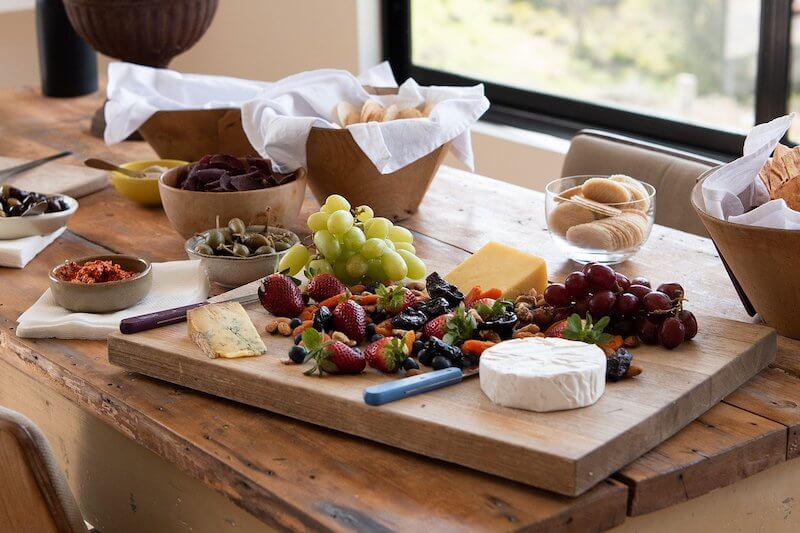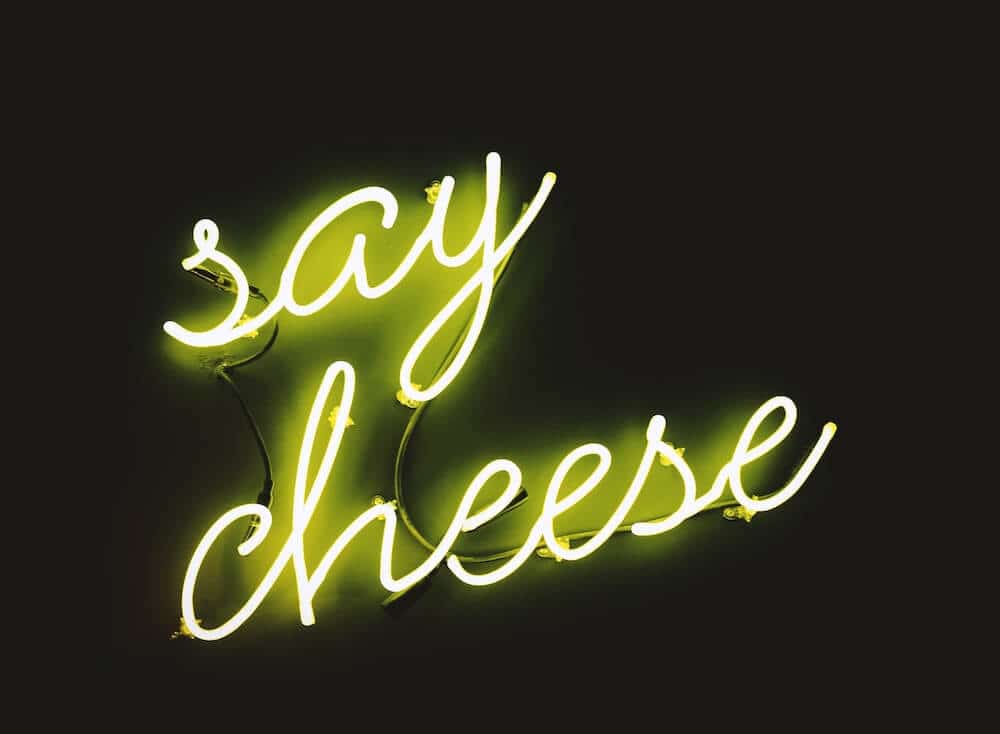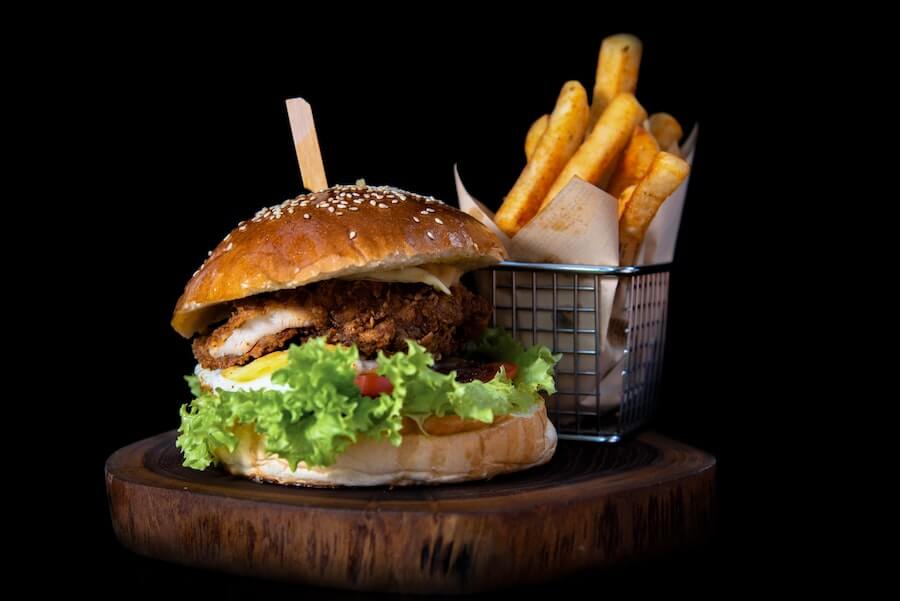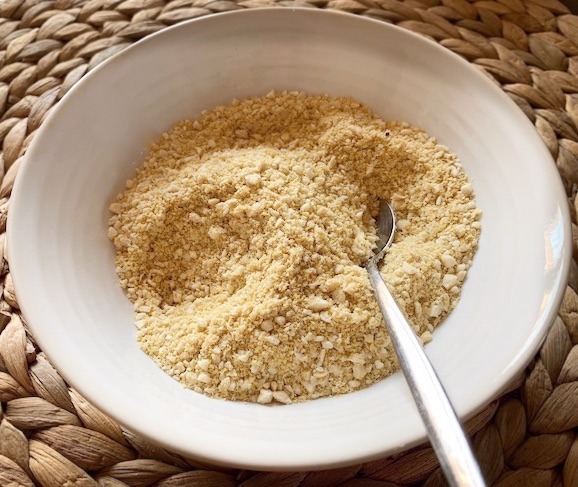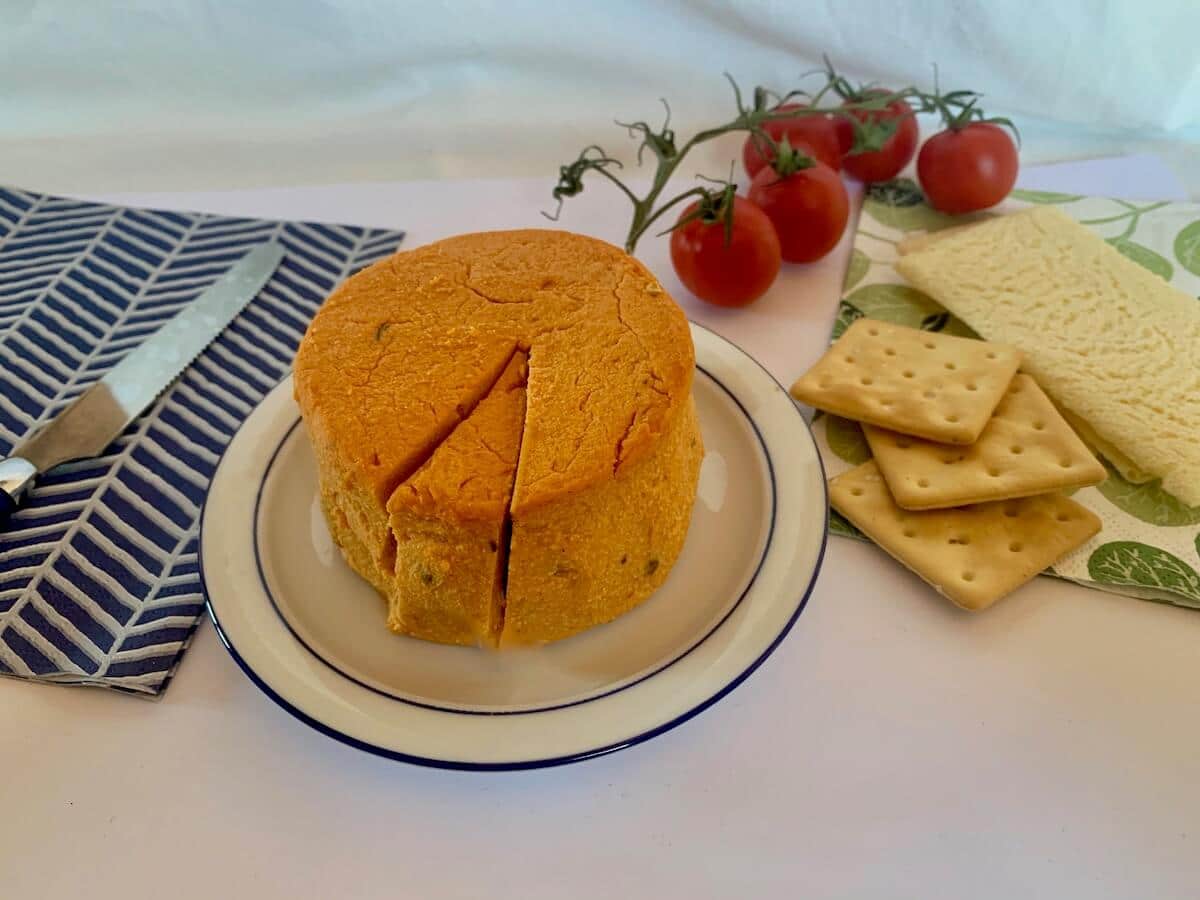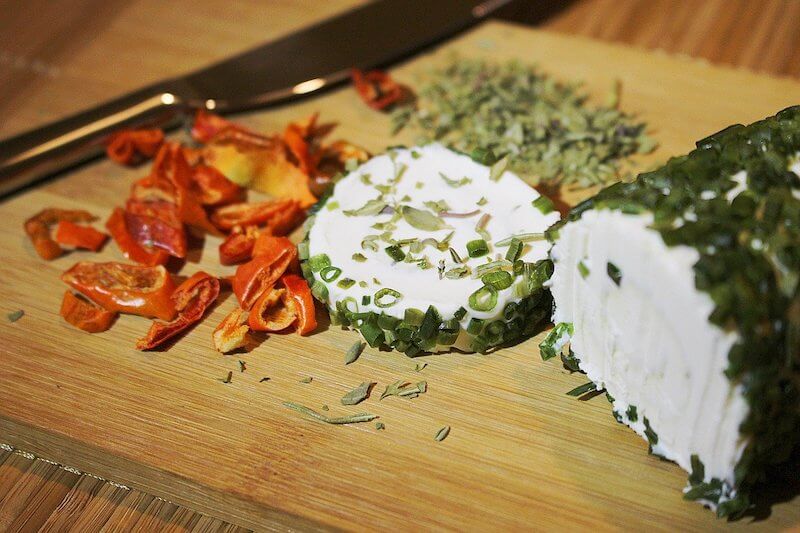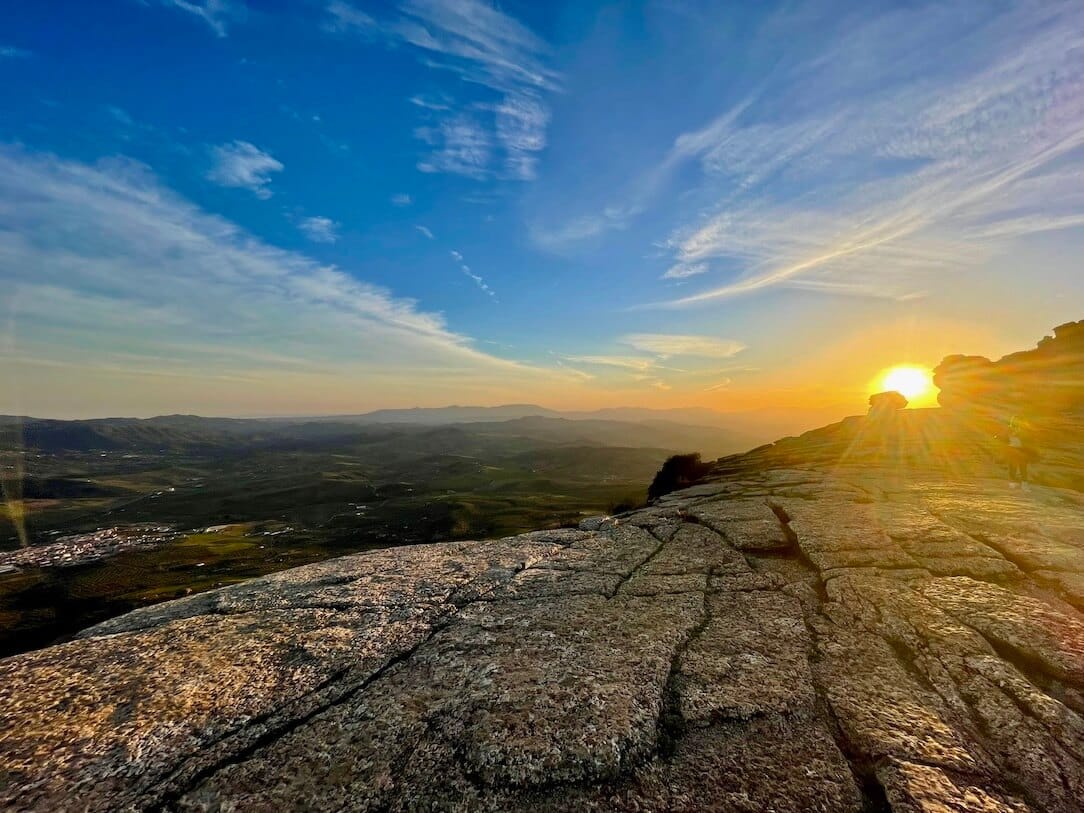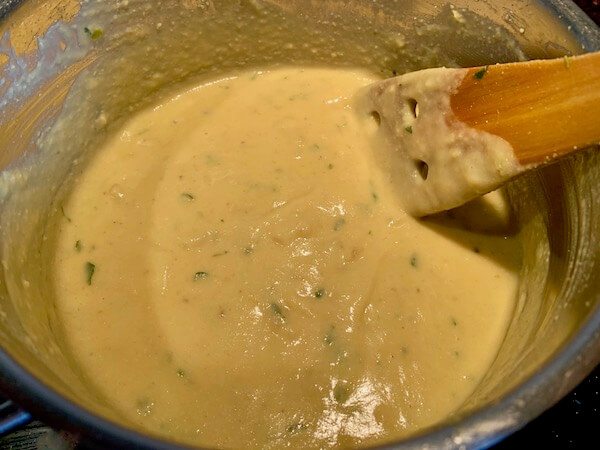So, why do vegans crave cheese, you ask.
If you’ve wondered, you’re not alone. Others who are drooling for that cheese-fix ask why vegan cheese isn’t taster than it is!
This might be partly because the vegan food industry’s done such a good job of creating imitation meat products, but it seems the cheese version doesn’t go down so well with everybody.
Well I’ll let you in to a secret, it might just be the price you pay for living a healthy, compassionate & sustainable lifestyle. Or is it?
(Ok, I hear you, not all vegans eat healthy food, but but that’s another topic all together.)
And the answer, of course isn’t just one simple point, because there are so many reasons behind the cravings.
And the first step to changing anything in life, is first by understanding it.
So, without further ado, let’s dive in. . .
Table of Contents
Firstly, In Brief, Why do Vegans Crave Cheese?
There are 5 principal reasons you crave cheese as a vegan.
It’s worth looking into each one in more detail so that you can unravel its relevance for you personally and more details are given after the summary.
By understanding these reasons you can then apply special tactics to overcome them.
5 Reasons Why You Crave Cheese as a Vegan
- Your subconscious mind hasn’t really accepted or assimilated the true reasons which led you to stop eating cheese, so it’s still trying to get you back to where it felt safe. Once your subconscious mind is really repelled by cheese (for whatever reason) you won’t have any more cravings. Until then, you’re battling against cognitive dissonance, where your conscious mind wants one thing and your subconscious mind is programmed for another. The single most powerful way to break a craving is to educate the subconscious mind about the truth of the situation.
- Cheese is actually addictive. Yes Incredible I know! Cheese contains a protein called casein which releases casomorphins into the bloodstream. Casomorphins then cross the blood/brain barrier to latch onto the opioid receptors in the brain and cause a pleasure response similar (but milder) to morphine.
- Cheese has so many different food functions, from convenience foods like pizza, to sauces, toppings, stuffings, casseroles and cheese boards. It takes time to re-learn how to cook (and eat) without it. It’s a process and you need to give it a little time.
- There are a lifetime of emotional memories which are associated with eating cheese, and it can feel as though you’re severing yourself from some kind of emotional warmth.
- It’s also possible that you aren’t actually eating enough of the satiating foods on your new diet and the craving is actually because you need more protein in the form of chickpeas, lentils etc. in your diet.
- Bonus point: check that you’re getting your mineral and vitamin needs covered by eating a balanced plant based whole foods diet and supplementing in accordance with your nutritionalist’s advice. B12 is recommended for everyone. You may also need to take vitamin D if you don’t get much exposure to sunlight and omega 3 among others.
Dive Deeper into Why You Crave Cheese as a Vegan
Each of the points above is a labyrinth. By understanding each one better, you can find the right pace for you personally.
Be kind to yourself as you transition from cheese and ditch the cravings forever.
Believe me, it is possible.
#1 The Role of Your Subconscious Mind and Food Addictions
Do you want to know a secret?
When you say you want something, quite often you actually only want it on a conscious level.
Which means that you don’t really want it (although you don’t know that).
And this situation makes it really difficult to achieve.
When that’s the case, you’re actually working against your inner programming.
If your conscious and your subconscious mind want the same thing however (and in other words there’s no cognitive dissonance involved), then there’s also no struggle.
It’s the same with any kind of change.
You don’t ‘give up‘ something when you wholly don’t want it anymore, because if it’s no longer something you want, there’s nothing to give up. Nothing to crave, nothing to wish for.
You wouldn’t say for example: ‘I’m giving up my headaches’!
You can use this same logic and method for changing your relationship with alcohol, giving up smoking, creating new habits in your life or breaking unwanted old ones.
The answer is always the same: get your subconscious mind on board first.
So the takeaway here is that there’s no need to beat yourself up over your mistakes.
Ever.
Because it wasn’t a failure of your willpower (you don’t need willpower), it was a miss-programming event.
If you slip back and eat something you’re trying not to eat, instead of feeling like a failure, recognise that your subconscious mind still isn’t quite on board yet.
In part two of this article we look at how to change these hurdles.
#2 Cheese Acts on the Opioid Receptors in the Brain
Scientific studies involving the cycle of food addictions, and specifically cheese addiction, have shown that cheese actually has the ability to affect you and your mind physically to cause an addiction, acting in a similar way as opiates.
Although the studies are in the early days, it wasn’t only cheese but also processed foods on the whole which were found to cause addiction, though via different pathways.
Cheese contains a protein called casein which is broken down slowly in the body, and while casein is being digested, it releases opiates called casomorphins into the bloodstream.
These casomorphins then connect to the same opioid receptors (Mu receptors) in our brains as heroin and other narcotics, causing dopamine production in the brian.
Dopamine production triggers the sense of pleasure.
Casomorphins are only about 10% of the strength of morphine, so just enough to create the please response and cause addiction.
An interesting source of information about the addictive qualities and negative effects of cheese on our health is Dr Neil Barnard, who wrote the Cheese Trap.
He’s a dedicated advocator of health through food and I highly recommend you watch his videos and read the book.
Do Neal Barnard’s The Cheese Trap – Break the Addiction
Essential watching video by Dr Neal Barnard all about cheese.
#3 Why do Vegans Crave Cheese? The Role of Cheese in Your Cooking
One of the reasons it can be difficult when changing from cheese to a non-cheese way of life is because cheese plays such an enormous role in our cooking in the western world.
If you stop and think about it, it’s hardly surprising you might feel a little lost when you first give it up if you’re not used to cooking without it.
I mean what will you do about all those cheese dishes?
Cheese on toast, cheese sandwich, pizza, cheese on your pasta, nachos with cheese, cauliflower cheese, cheese-stuffed jacket potato, baked beans with cheese, goats’ cheese salad, ploughman’s lunch, deep fried camembert, cheese sauce . .
What’s a girl to do? Or a boy for that matter . . .
This hurdle can easily be overcome by relearning how to approach your meals and eat a vegan whole foods plant based diet and learning to cook without recipes.
#4 Emotional Links & Eating Cheese
When it comes to cooking, we’ve been programmed not only by our learned behaviour and our education but also by our experiences, our circumstances, and our past emotional responses to situations.
You know when you associate an incredible moment with something you ate or drank?
For me for example, a cheese board triggers memories of special evenings spent with a particular friend, sharing great company and a glass of delicious port.
The whole world of cheese has a kind of hazy ‘love’ vibe that’s been created around it and which most people will feel to some extent or another.
I remember, before I discovered the truth, how exciting I thought it was to buy samples of different cheeses when visiting a new country.
If your subconscious mind feels as though it’s been cut off from these warm fuzzy feelings that surround the world of cheese as you saw it, then it will set up some food cravings to get back that loving feeling.
Don’t worry though, it’s only an illusion and is closely related to point #1.
When your subconscious mind in on board, you’ll be able to cherish your memories without feeling like you’ve cut out any of the emotional aspect.
And of course, there’s no less love flying around for a non-cheese eating person than any other!
#5 Craving Cheese Because You’re Lacking Essential Nutrients
When you first give up cheese you’re actually making quite a huge change to the way you eat and if you don’t take care to make sure you get a balanced diet, you could end up lacking in nutrients.
The first kind of trap would be somebody who jumps from eating cheese as their main source of protein and then switches it out for unhealthy vegan processed foods which are high in sugar and/or salt and in turn create food cravings.
At the other end of the spectrum we have the person who cuts out cheese and eats just vegetables and salads, leaving their body nutrient deficient. A body which is lacking in nutrients will set up cravings to try and rectify the situation.
So instead of ignoring the craving, take a look at how you can live your happiest, healthiest life by creating balanced meals without recipes or following delicious whole food recipes.

You will feel better if you kick dairy to the curb and replace it with a vegan wfpb diet.
Speak to a vegan nutritionalist if you feel you need some professional advice (non-vegan health professionals will not understand your requirements).
There will always be multiple opinions around, it’s your job to go with what resonates in your heart. If being vegan resonates with your soul, don’t then seek advice from people who are not specialists in that field.
Some of the additional items to consider adding to your diet are ground flax for omega 3 and other seeds for various benefits.
Plus vitamin B12, which is lacking in almost everybody’s diet, not just in a vegan diet, because the soil has become depleted from so many years of chemical input.
So it’s advisable to take a daily dose of vitamin B12 and you may also choose a quality multi vitamin.
I talk about which vitamins I personally take in my post about 5 steps to be menopause naturally: a personal account.
Part Two: 5 Tips to Never Crave Cheese Again
Here I want to share with you some secrets you can use to help you stop craving cheese when you first take the plunge and decide to kick the dairy out the door.
Yaaay! Congratulations for taking (or starting to investigate) this great step towards enjoying better health and creating a more compassionate world.
Summary of How to Stop Craving Cheese
- Get your subconscious mind on board 100% and you will no longer crave cheese (as long as you cover all your nutritional needs too).
- Go at you own pace and always have a positive attitude. Look at the wins.
- Make homemade vegan cheeses and leave the commercial ones alone just for now, except for occasionally.
- Learn to cook new things in a different way than before.
- Recognise the emotional ties you have with your cheese associations.
- Cover your nutritional needs and check with a vegan-specialised nutritionalist if you need help.
#1 Getting Your Subconscious Mind on Board to Stop Craving Cheese
Getting your subconscious mind on board is the single most powerful way to change any unwanted habits or behaviours, from quitting smoking to drinking alcohol or any other type of addiction.
Your subconscious mind doesn’t learn by being told something. It learns through experience. And it learns best by regular input over a period of time.
Shock value can create a response from your subconscious mind, but it won’t be absolutely reprogrammed until it gets backing evidence.
So when you first see the horrors of the dairy industry or read about the health terrors of eating dairy . . . (uhm by the way, did you know that around 68% of all adults in the world have a dairy intolerance?)
But I digress!
When you first come across the shocking information about cheese, you may reel from it and decide then and there on the spot that you don’t want to support that industry anymore.
But that doesn’t mean that your subconscious mind will also suddenly flip from ‘yes’ to ‘no thank you’.
No way. It’s had many years of believing and being told that cheese is good for you, cheese is fine for the cows and cheese doesn’t harm the environment.
It wouldn’t be protecting you sufficiently if it just upped and changed directions at the flip of a coin.
Nope, you’re going to have to work a bit harder if you want to change the program that’s running in the background of your mind for every decision you make.
But the good news is that when you understand this, then you’ll know how to take back the power to make changes and do it smooth-sailing easy.
There doesn’t need to be a struggle.
But there does need to be a process. A period of time to become fully aware on every level.
Your new decision needs to resonate on a physical, mental and spiritual level.
So what are your driving motives for giving up cheese? Are they for your health, for animal welfare or for the environment?
If the environment is one of your motivations, watch Cowspiracy: the Sustainability Secret.
Secrets of How to Get Your Subconscious Mind On Board
To do this, choose the methods which resonate with you most and keep on drip-feeding your mind with the information.
Once you truly believe that you don’t want to eat something, you’ll never ever feel a craving for it again.
You don’t need to do everything listed here, just the ones that feel right.
- Watch all the documentaries you can find about the production of cheese and the negative health impacts of dairy on your health, on the planet and on the cow-mothers and their calves.
- Read everything you can and just keep reading gently, surely, over the space of time, topping up your information-tank.
- Join vegan facebook groups or real life groups where you can interact with other people who are travelling the same journey.
- When you look at cheese in the shop or on a pizza, train yourself to watch a mental image of the story behind it. Form the habit of going over all the facts you’ve learned every time you see or smell it or go to eat it.
- Look at the images of the calves being taken away from their mothers and refuse to close your ears and eyes to it. After that, allow yourself to eat the cheese if you still want it. Just form the habit to reinforce your knowledge.
- Look up the papers written about statistics and the inflammatory nature of dairy as a food and its relationship to cancer. Refuse to wear blinkers when it comes to health reports and cheese. Cheese is not suited to the human being.
- Practise meditation and feel your choice resonate deep within you.
- Visualise your future self eating the way you want to eat and the life you are travelling towards. If you use vision boards, create one for your diet.
- Do a quick self-hypnosis session just before bed and go to sleep with images of your new life. See yourself healthy and joyful and cheese-free.
- Always be positive about your progress.
As you do these things you’ll slowly bring your subconscious mind up to speed.
Remember, if you found something truly deplorable on a conscious and a subconscious level, then you wouldn’t opt for it no matter what.
Because it wouldn’t be acceptable to your conscience.
And when that happens, then you will be free from the addiction.
#2 Why do Vegans Crave Cheese? How To Break the Physical Addiction to Cheese
As well as #1 above, you do have to deal with the early days before you’ve reprogrammed your mind.
There are several ways to go about this.
Some people give up everything overnight, but I believe it’s easier and more successful in the long run, to gradually change your habits over a period of time.
Allow yourself to go at your own pace and always use positive reinforcement.
Keep some cheese in the fridge in the beginning and every time you take it out to eat or cook with it, run over the whole story in your mind.
Picture the birth of the calf and the production of the milk and visualise the whole process it took to get to be a piece of cheese in your fridge.
Then, in your mind’s eye, ponder on the intolerance that most adults have to dairy (even without knowing it) and the hormones that are running wild in the milk.
Remind yourself of the breast cancer which has been linked to high dairy consumption and the high fat, high calorie value of the cheese.
Then, after watching your internal tape, either replace the cheese in the fridge, or eat or cook with it in the way you were planning to.
Get into the habit of playing this mental information every time you have some cheese. Allow the change to grow naturally. It takes time.
Sometimes, you’ll find you just don’t fancy it anymore.
When you do eat it, don’t beat yourself up, just know that you’re changing a life-long habit and you’re doing it properly, from the foundation up, for lasting success.
By adopting this method you encourage yourself to really think about the facts rather than go on automatic pilot.
Allow yourself the time it needs. You should find yourself eating cheese less and less over time.
Place the inner intention to be free from cheese and know that you’re going in that direction.
Breathe. It’s ok.
It’s just a matter of truly not wanting to not see what it is anymore.
It’s like having a blindfold removed suddenly.
Should I Eat Commercial Vegan Cheese to Beat the Cheese Cravings?
Everybody will have a different answer to this question, but I believe the most efficient way to beat the craving is to aim at getting rid of commercial cheese altogether, especially in the beginning.
That’s not to say you shouldn’t buy a little vegan cheese once in a while, but generally I’d forget about commercial vegan cheese until you’ve broken the cheese addiction.
The reasons are twofold: firstly, vegan cheese won’t taste so nice in the beginning and you’re bound to notice that vegan cheese, well it isn’t cheese. ?
And secondly because commercial vegan cheese isn’t actually a whole food you should be desperate to include in your life anyway.
So if you eliminate cheese altogether and get your head round cooking scrumptious meals without cheese, you can always add a little vegan cheese at a future moment if you want.
What About Homemade Vegan Cheese?
If you’re of a mind to make homemade vegan cheeses well that’s a different story!
I would absolutely recommend making some simple vegan parmesan for sprinkling on your lentil pasta dishes, and some cashew cheese sauce or homemade vegan mozzarella for a tomato and mozzarella salad.
You could also branch out into making some harder vegan cheeses or be really adventurous and make your own vegan brie.
Just remember to think of these cheeses as delicious new types of cheese. Don’t compare them to the old cheese from your past.
Of course you can enjoy some homemade vegan cheesecake!
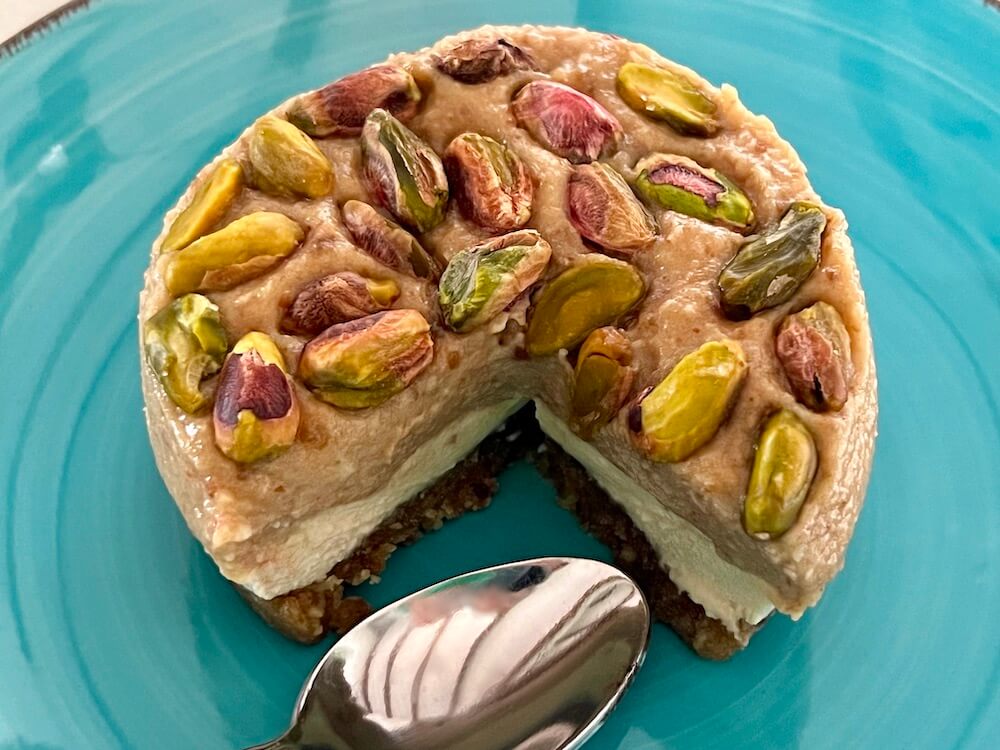
The number one problem when breaking any type of addiction is to get the subconscious mind on board.
Once you know that you’re doing what you truly want to do, you won’t get any more cravings.
#3 Changing Your Cooking Habits to Break the Addiction to Cheese
The way you approach cooking will have a lot to do with how difficult you find it to cook without cheese. But no matter how you used to cook, giving up cheese will be a big step no matter what.
If you approach your new way of cooking by combining whole foods, you’ll by-pass the whole issue of how to replace cheese.
Start by finding new vegan whole food recipes on the internet which you enjoy and gradually experiment with more and more as you build a new repertoire of recipes. Learn how to cook balanced meals without recipes and enjoy things like vegan buddha bowls, king salads, homemade humus, cashew sauce, cilantro sauce, homemade pesto and so much more.
You’ll find cheese becoming a distant memory if you remove all processed foods, refined sugar and dairy from your diet, as your taste buds evolve and simple whole foods explode with flavour.
#4 Why do Vegans Crave Cheese? Breaking the Emotional Links
There’s so much information loaded into your brain-chip regarding cheese.
You thought it was just cheese?
Think again.
It’s cosy, it’s sophistication, it’s elegant, it’s fun, it’s adventurous, it’s feeling safe or laughing or travelling . . .
Once you recognise that these links exist you can stop them from interfering with your efforts to break the addiction with cheese.
In part, this point circles back to #1 of reprogramming the subconscious mind and in part it revolves around the knowledge that by stopping eating cheese, you aren’t actually giving up any of those other associated wonderful, emotional things.
They were just there as hidden code within the programming of your mind, and once you shine a light on them you can see them for what they really are: illusions.
Just by recognising this fact you can take away its power and help to stop craving cheese as a vegan.
#5 Why do Vegans Crave Cheese – Lacking Nutrients
If you think you might have been neglecting your nutritious needs, take some time to rebuild your meal planning to include the different food groups in each meal.
By including something from each group you’ll cover your nutritional needs and feed your body on lots of phytonutrients and antioxidants, plant proteins, healthy carbs, natural oils, vitamins and minerals.
Group 1: Fruit and vegetables with as many different colours as possible.
Group 2: Chickpeas, lentils, beans, tofu . . .
Group 3: Wholegrain rice, quinoa . . .
Group 4: Nuts and seeds
Group 5: Homemade sauces to accompany your delicious plate of plant food.
Click on the link to read more on how to put together a balanced meal without a recipe.
Conclusion on Why do Vegans Crave Cheese?
I hope this post helps you to understand the complexity of giving up cheese and to never beat yourself up if you struggle with a food addiction but instead to delve deep into your subconscious mind and recognise what you find there.
Replace the old beliefs with the new information and keep on feeding that knowledge.
With time, I guarantee you it will become so easy because when you really know it in your heart that a food is high in fat, high in calories, disease promoting and comes from unethical and unnecessary suffering, there’s no way you’ll want to eat it anymore.
So smile and be happy because your cheese cravings are going to become a thing of the past!
